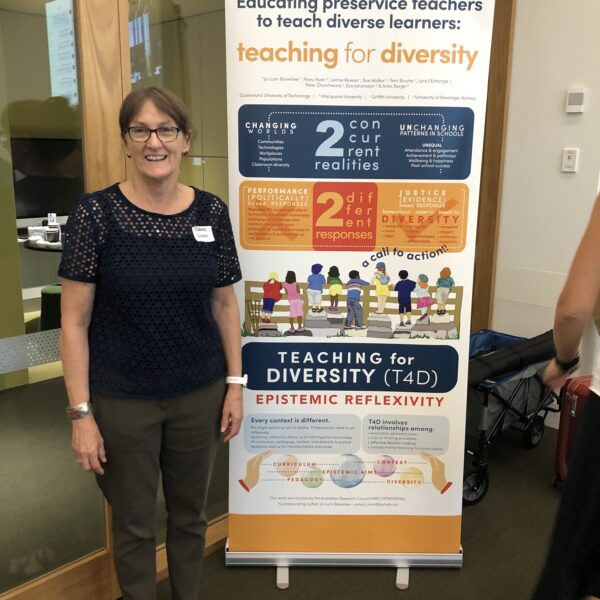
My passion for understanding about learning and knowing was ignited in my undergraduate early childhood teacher education studies. This fascination with children’s cognition continued as I taught across a range of early years education contexts (childcare, C& K Kindergarten, and state preschool).
Moving into a teacher education role in the mid-1990s, I turned my attention to educators’ cognitions. I particularly wanted to understand more about educators’ underlying beliefs about learning and knowing and how these manifested in everyday teaching practices. I wondered why some educators chose to “stand and deliver” focussing on instilling knowledge, whereas others learned with their students, incorporating their ideas and experience into learning experiences. Thus began a 20 year career-long interest in exploring personal epistemologies – the beliefs we hold about the nature of knowledge and knowing. It fascinated me that we could understand more about teaching practices by asking educators how they viewed the nature of knowledge and knowing within their contexts. My PhD (completed in 2000), and the research program which it spawned (including 3 ARC Discovery Projects), focused on exploring teaching and learning across a range of educational contexts by drawing attention to educators’ and learners’ personal epistemologies, otherwise known as epistemic cognition.

A chance conversation with Professor Mary Ryan, as we worked together in different research leadership roles in the Faculty of Education at QUT, was the start of a major shift in my thinking about epistemic cognition. Mary’s work on reflexivity identified discerning, deliberation and dedication as key features of teachers’ everyday decision making, while my research on epistemic cognition was yet to take root in the everyday decision making of teachers. We soon recognised the complementarity of our research programs, and our epistemic reflexivity theoretical framework was born! That was the beginning of a transdisciplinary approach to epistemic decision making – connecting sociology (reflexivity) with educational psychology (epistemic cognition) in a new pedagogy of teacher education.
In 2017 we decided to put this new theory to work by applying for the current ARC Discovery grant which explored teacher educators’ epistemic reflexivities for teaching about/to/for diversity. The ARC research team is diverse, values-driven, caring, and scholarly in its approach to thinking about how to promote teaching for diversity in teacher education. What a great learning experience it has been working with such a dedicated and caring group of researchers – a professional and personal highlight in my career.